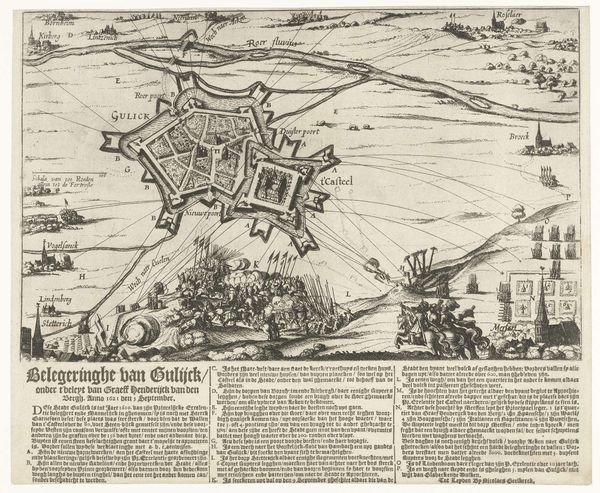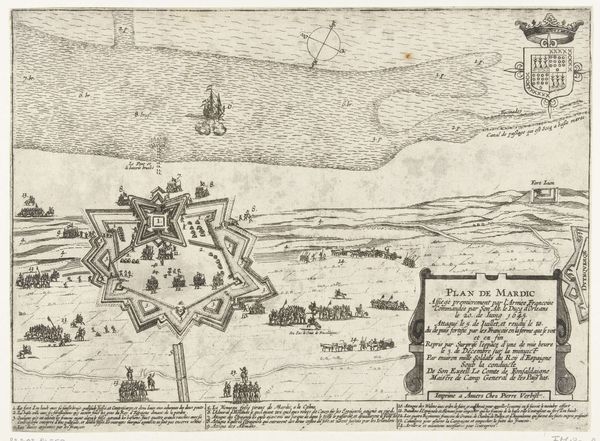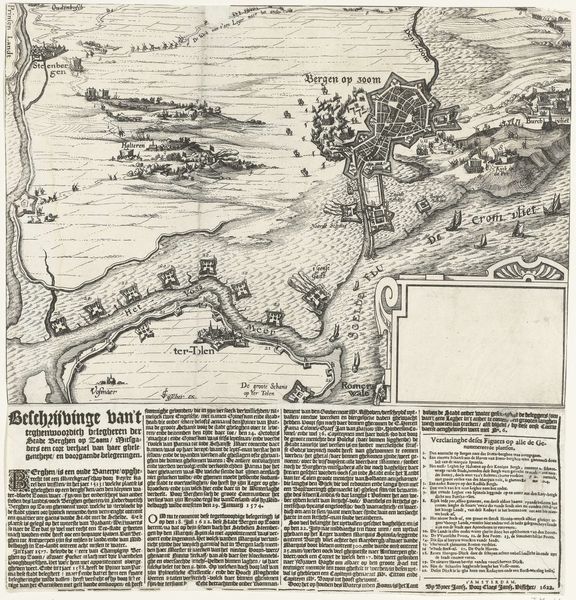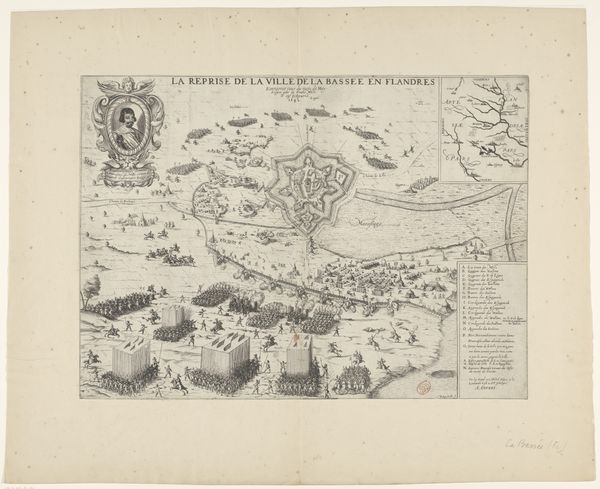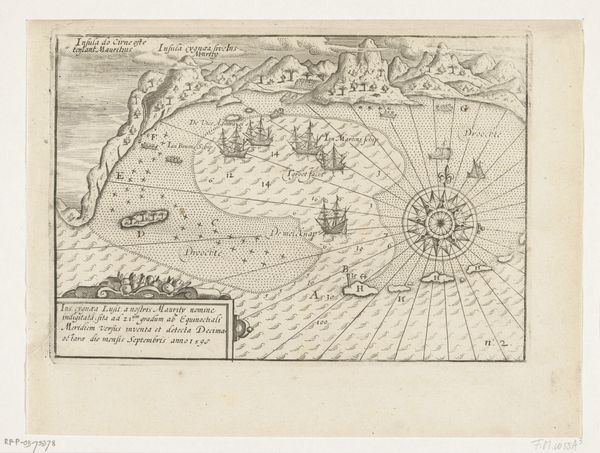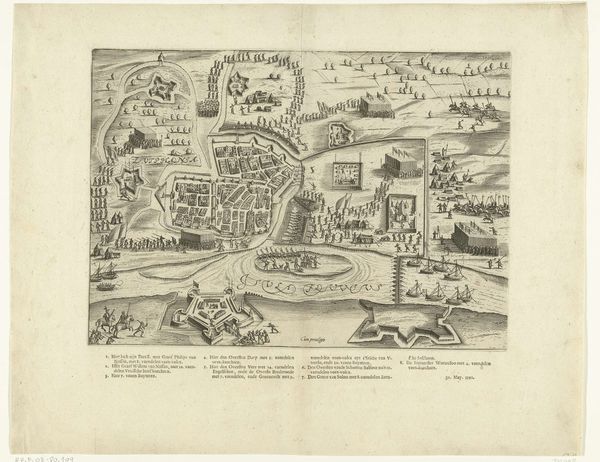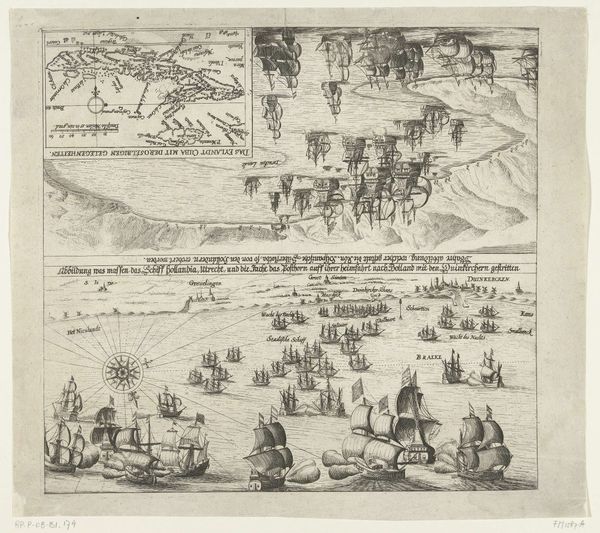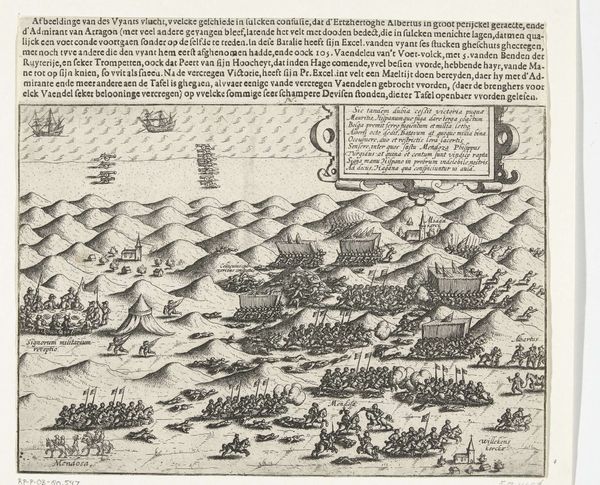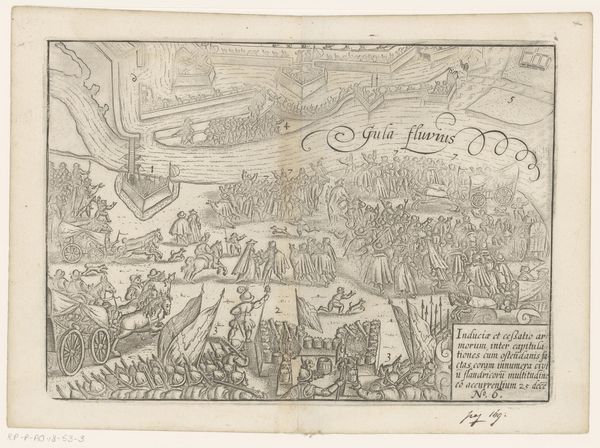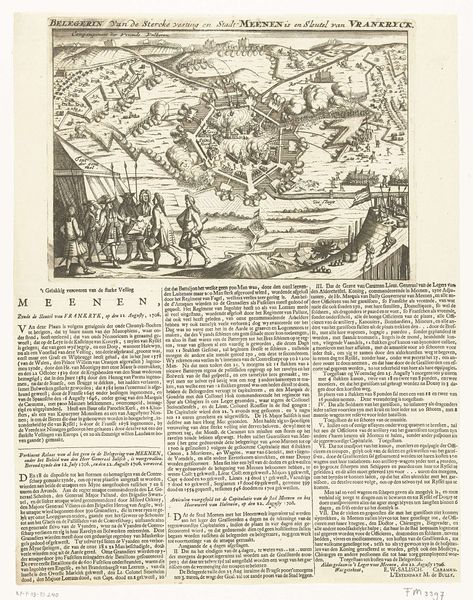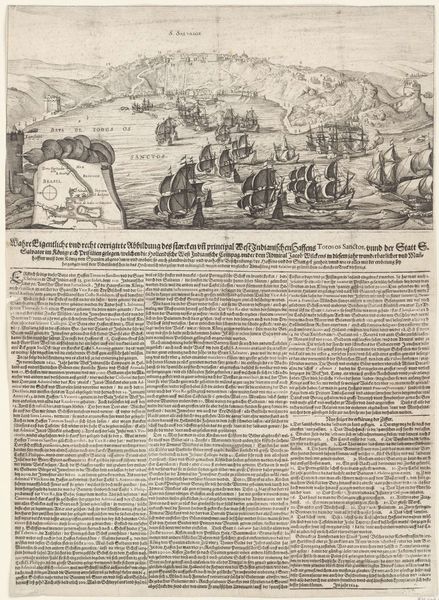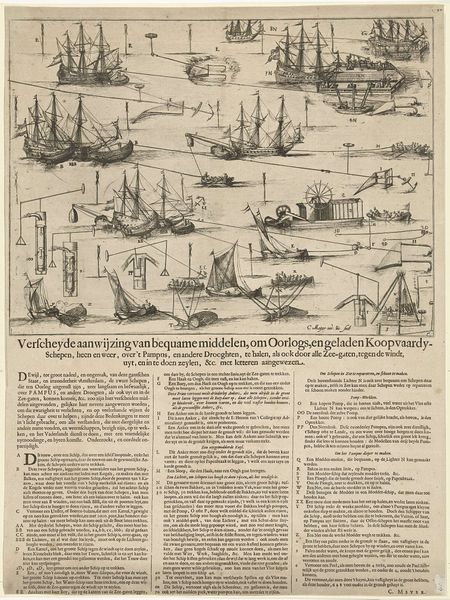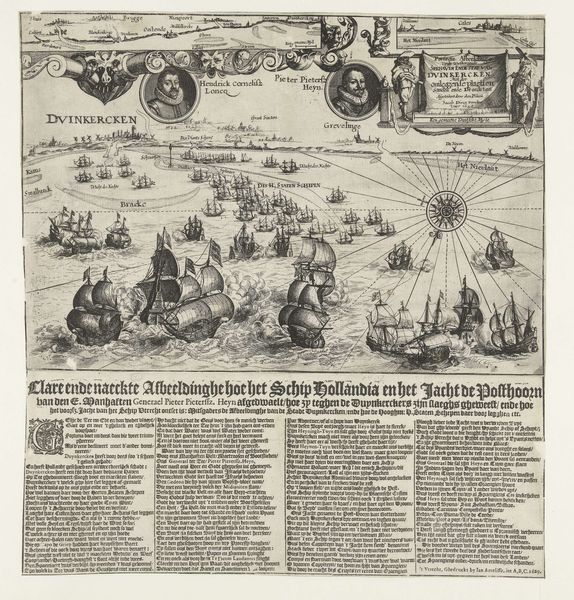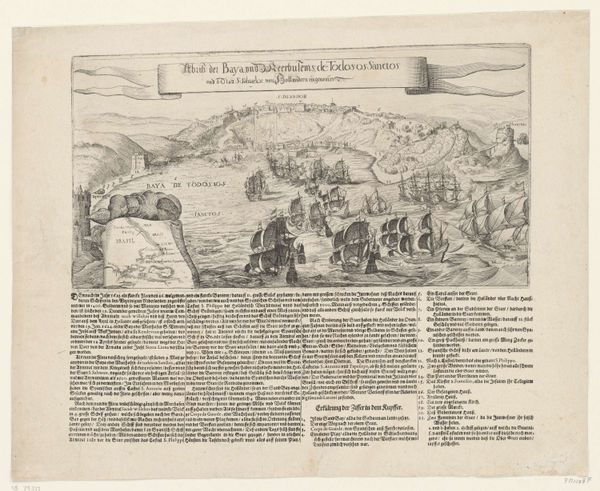
print, engraving
#
dutch-golden-age
# print
#
landscape
#
cityscape
#
engraving
Dimensions: height 350 mm, width 363 mm
Copyright: Rijks Museum: Open Domain
This print, depicting a fleet off the coast of Dunkirk, was made around 1628 by an anonymous Dutch printmaker. The primary material is paper, transformed through the process of engraving, an intaglio printmaking technique. The engraver would have used a tool called a burin to carve lines into a copper plate, creating a network of grooves that hold ink. This painstaking process demanded considerable skill, acquired through years of apprenticeship. The resulting image presents a bird's-eye view of a naval engagement, complete with detailed representations of ships, fortifications, and geographical features. The density of the lines creates areas of dark and light, conveying a sense of depth and texture. But this print is more than just a picture. It's also a piece of propaganda, intended to celebrate Dutch naval power and warn potential adversaries. The act of making this print—replicating and distributing it widely—contributed to a broader project of national identity formation, using the tools of art and commerce to shape public opinion. It demonstrates how processes of making can also be powerful tools of political expression.
Comments
No comments
Be the first to comment and join the conversation on the ultimate creative platform.
